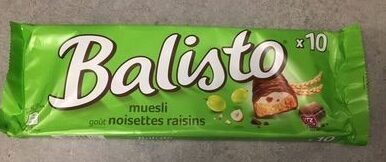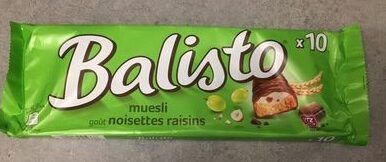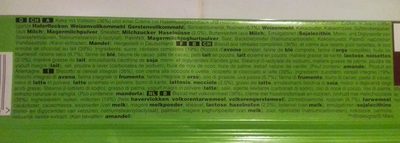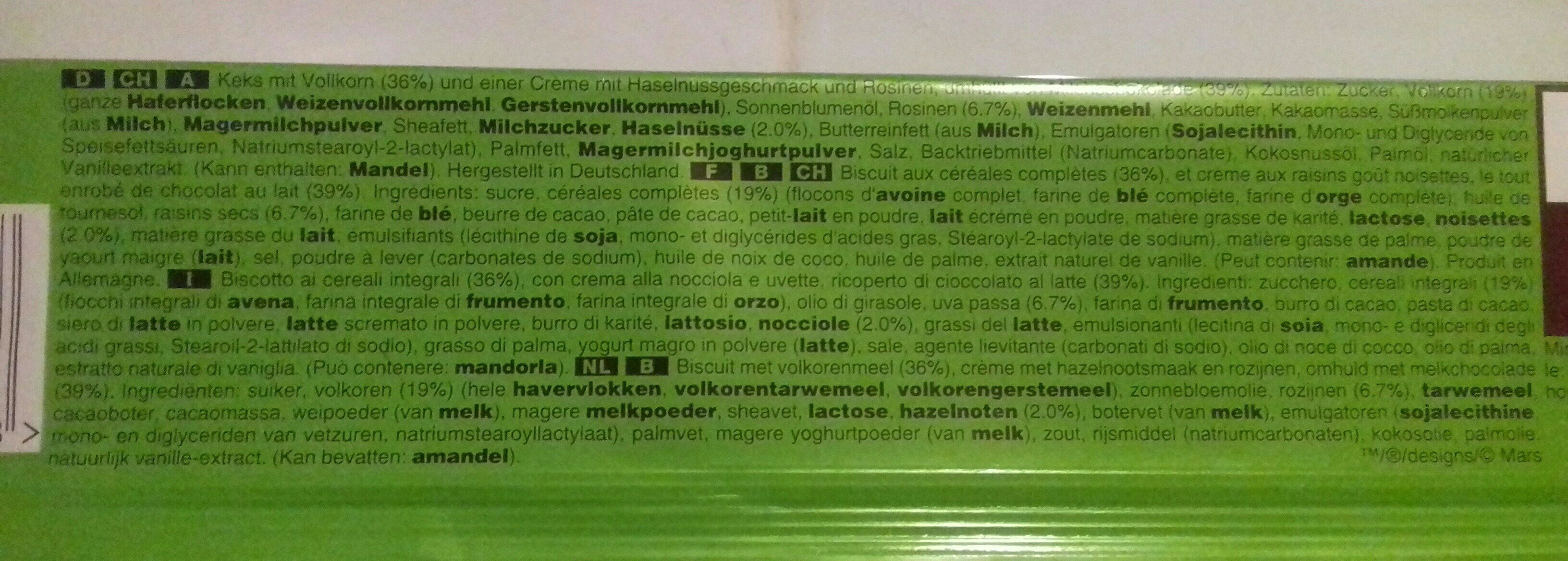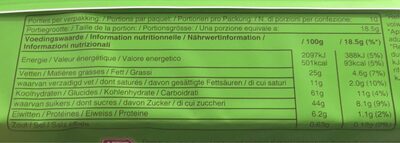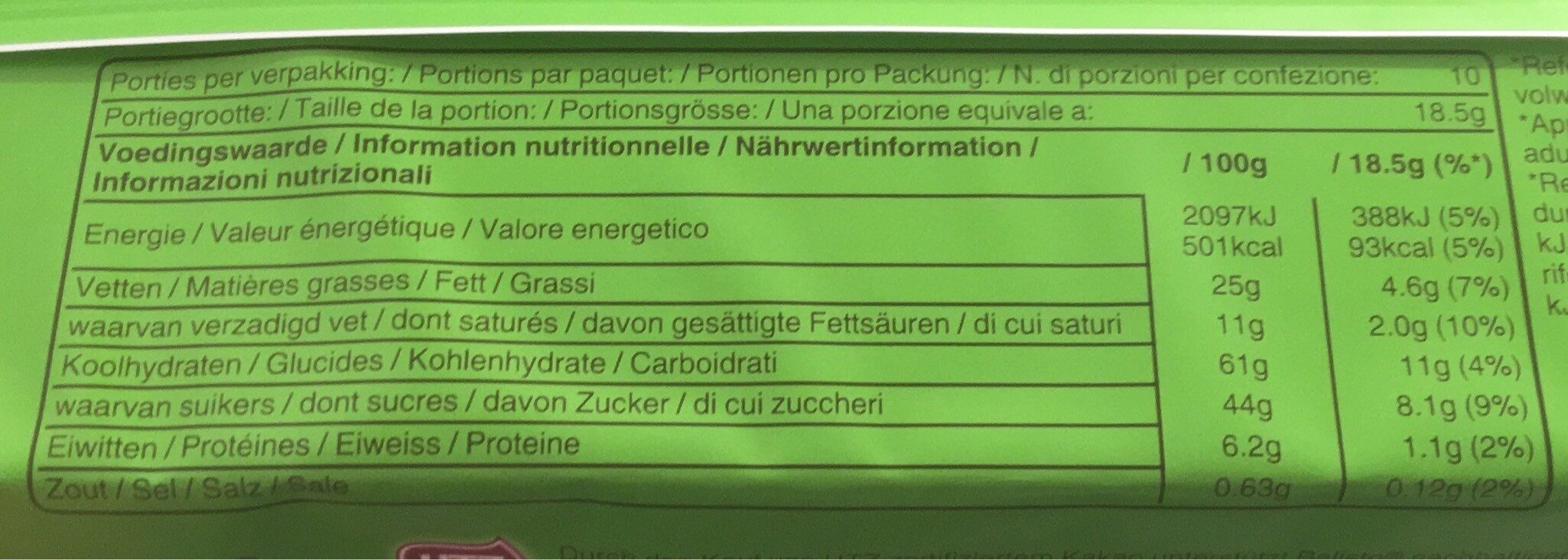Muesil goût noisettes et raisin - Balisto - 185g
This product page is not complete. You can help to complete it by editing it and adding more data from the photos we have, or by taking more photos using the app for Android or iPhone/iPad. Thank you!
×
Barcode: 5000159419338 (EAN / EAN-13)
Common name: Barres biscuitées chocolat - Muesil, Raisin et noisettes
Quantity: 185g
Packaging: fr:Plastique individuelle, fr:Plastique lot
Brands: Balisto
Categories: Snacks, Sweet snacks, Bars, Biscuits and cakes, Cakes, Cereal bars
Labels, certifications, awards:
Sustainable farming, Made in Germany, UTZ Certified, UTZ Certified Cocoa
Manufacturing or processing places: Allemagne
Matching with your preferences
Environment
Packaging
Transportation
Threatened species
Labels
Report a problem
Data sources
Product added on by kiliweb
Last edit of product page on by packbot.
Product page also edited by alex-kiol-jjo, date-limite-app, elsouille91, foodrepo, openfoodfacts-contributors, quechoisir, quentinbrd, roboto-app, scanbot, yuka.K5pQZ-LVAvx7JcfD2Lwa3T-WP8vFXKMGPSZRow, yuka.R1B0ZUhLY2t1YVU0bE5vRThrenEyOVpGbmJPZ1hscVRNTkk5SUE9PQ, yuka.V2I5WUxJY1JxdkF4dnNJZ3dSM3I1TmhZNTZHTkJqaXlkT3czSVE9PQ, yuka.ZnFzNU1yMGx1S1lTaE1JMHprangyODV2MzV5RldHNm1FZWs5SUE9PQ.
